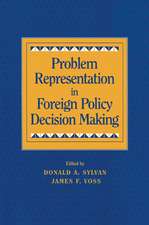Custom, Power and the Power of Rules: International Relations and Customary International Law
Autor Michael Byersen Limba Engleză Hardback – 10 mar 1999
| Toate formatele și edițiile | Preț | Express |
|---|---|---|
| Paperback (1) | 287.28 lei 6-8 săpt. | |
| Cambridge University Press – 10 mar 1999 | 287.28 lei 6-8 săpt. | |
| Hardback (1) | 682.42 lei 6-8 săpt. | |
| Cambridge University Press – 10 mar 1999 | 682.42 lei 6-8 săpt. |
Preț: 682.42 lei
Preț vechi: 793.51 lei
-14% Nou
Puncte Express: 1024
Preț estimativ în valută:
130.59€ • 134.92$ • 108.63£
130.59€ • 134.92$ • 108.63£
Carte tipărită la comandă
Livrare economică 19 martie-02 aprilie
Preluare comenzi: 021 569.72.76
Specificații
ISBN-13: 9780521632898
ISBN-10: 0521632897
Pagini: 276
Dimensiuni: 157 x 237 x 23 mm
Greutate: 0.54 kg
Ediția:New.
Editura: Cambridge University Press
Colecția Cambridge University Press
Locul publicării:Cambridge, United Kingdom
ISBN-10: 0521632897
Pagini: 276
Dimensiuni: 157 x 237 x 23 mm
Greutate: 0.54 kg
Ediția:New.
Editura: Cambridge University Press
Colecția Cambridge University Press
Locul publicării:Cambridge, United Kingdom
Cuprins
Part I: 1. Law and power; 2. Law and international relations; 3. Power and the international law; (i) Power and the debate about whether resolutions and declarations constitute state practice; (ii) Power and the scope of international human rights; C. Power and critical legal scholarship; (iii) Power as a threat to international law?; Part II: 4. The principle of jurisdiction; (i) Jurisdiction and customary international law; 1. Internal rules; 2. Boundary rules; 3. External rules; (ii). Jurisdiction by analogy; 5. The principle of personality (i) Diplomatic protection; (ii) The 'International Minimum Standard'; (iii) Stateless persons and refugees; (iv) Non-governmental organisations; 6. The principle of reciprocity; (i) Reciprocity and the making of claims; 1. The Truman Proclamation; 2. The Arctic waters pollution prevention act; 3. An act to amend the Coastal Fisheries Protection Act; (ii) Reciprocity and negative responses to claims; (iii) Reciprocity and persistent objection; 7. The principle of legitimate expectation (i) Legitimate expectation, acquiescence and customary international law; (ii) Legitimate expectation and international institutions; (iii) Legitimate expectation and relative resistance to change; (iv) Legitimate expectation and mistaken beliefs in pre-existing rules; 1. State immunity from jurisdiction; 2. The breadth of the Territorial Sea; (v) Legitimate expectation and judgements of the International Court of Justice; (vi) Legitimate expectation and treaties; (vii) The 'Baxter Paradox'; Part III: 8. Fundamental problems of customary international law; (i) The chronological paradox; (ii) The character of state practice; (iii) The epistemological circle; (iv) Inferred consent; 9. International relations and the process of customary international law (i) The determination of 'common interests'; (ii) 'Cost' and the identification of legally relevant state practice; (iii) Repetition and relative resistance to change; (iv) Time and repetition; (v) The conspicuous character of some common interests; 10. Related issues; (i) Customary international law and treaties; (ii) The persistent objector; (iii) Jus Cogens; (iv) Jus Cogens and Erga Omnes rules; Part IV: 11. Conclusions (i) Distinguishing the 'New Haven School'; (ii) A response to Koskenniemi; (iii) The interdisciplinary enterprise; (iv) Reconsidering the 'realist' assumptions; Bibliography.
Recenzii
"Byer's book is a provocative attempt to bring together international relations theory and the study of evolving customary international law, those unwritten, informal rules that are binding upon states. Recommended for upper-division undergraduates and above." Choice
Descriere
This book explains the most foundational aspect of international law in international relations terms.

















